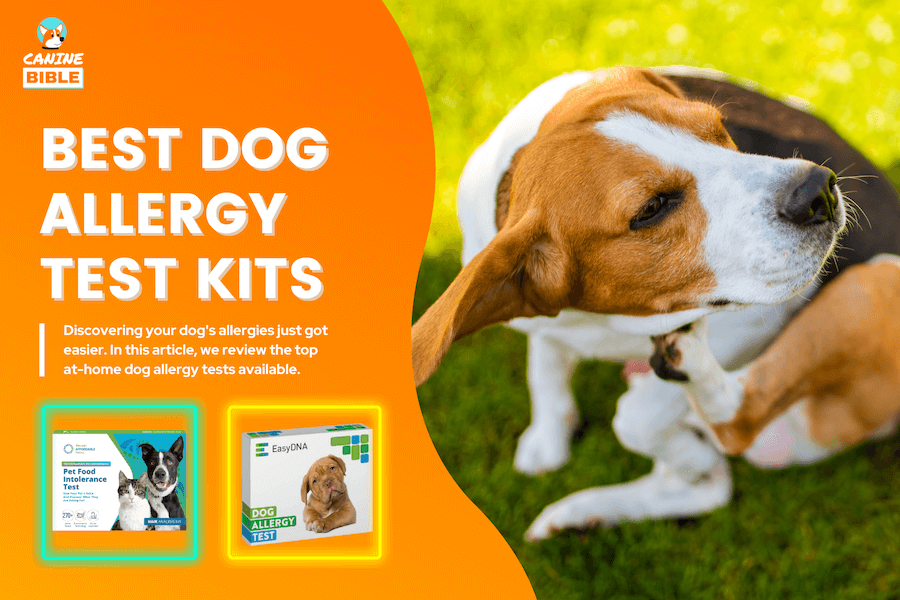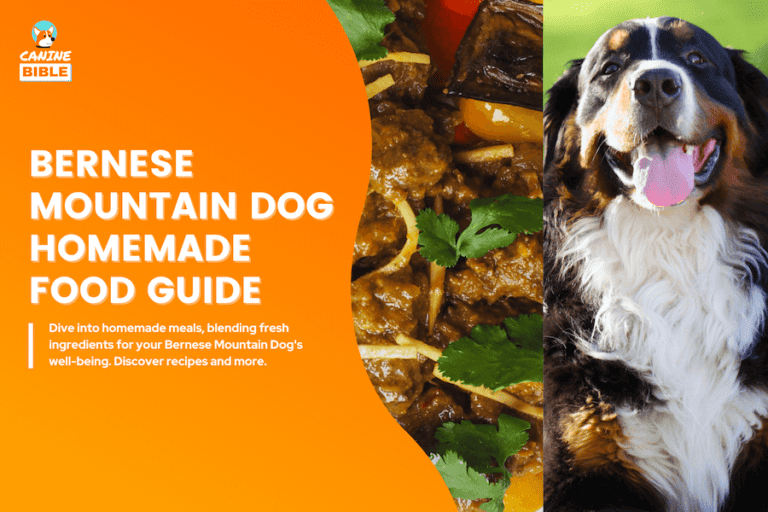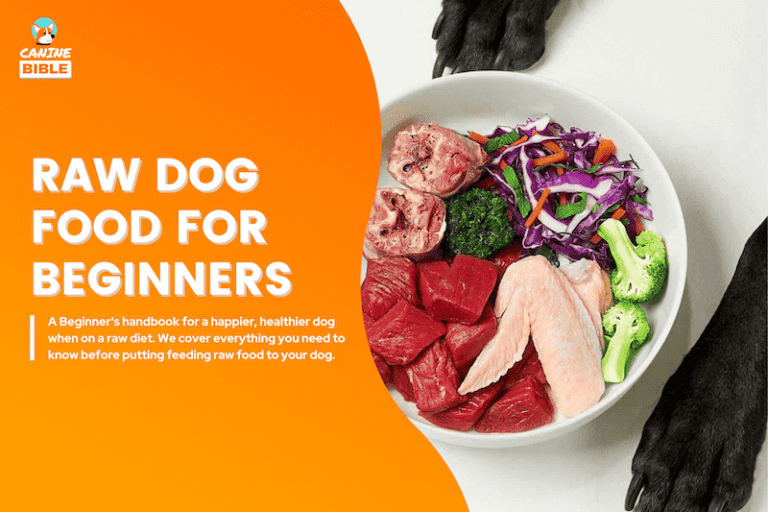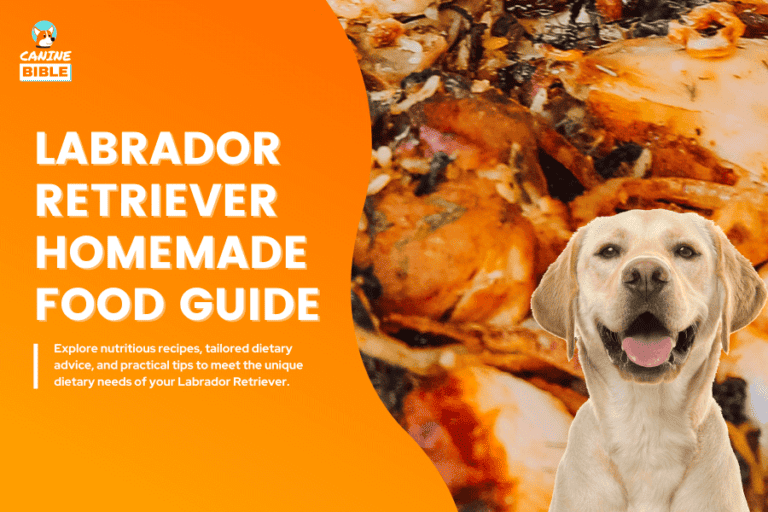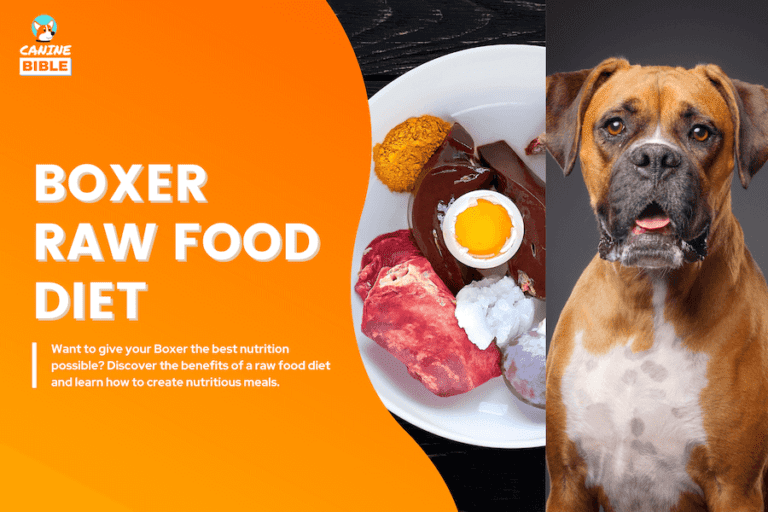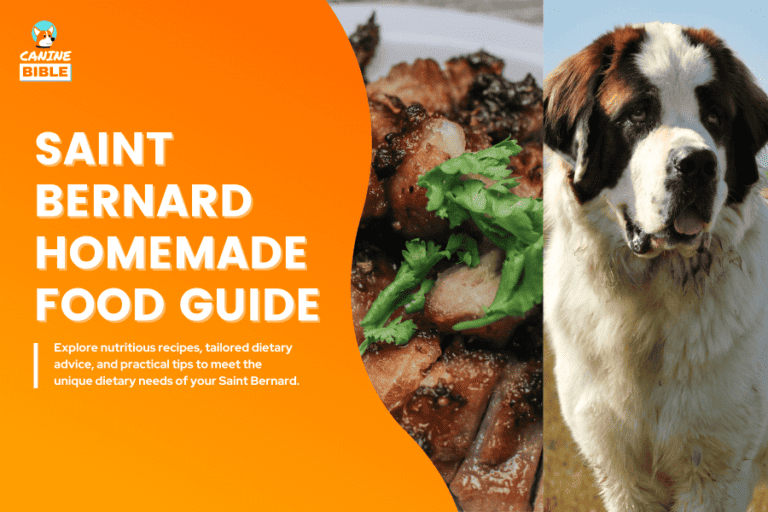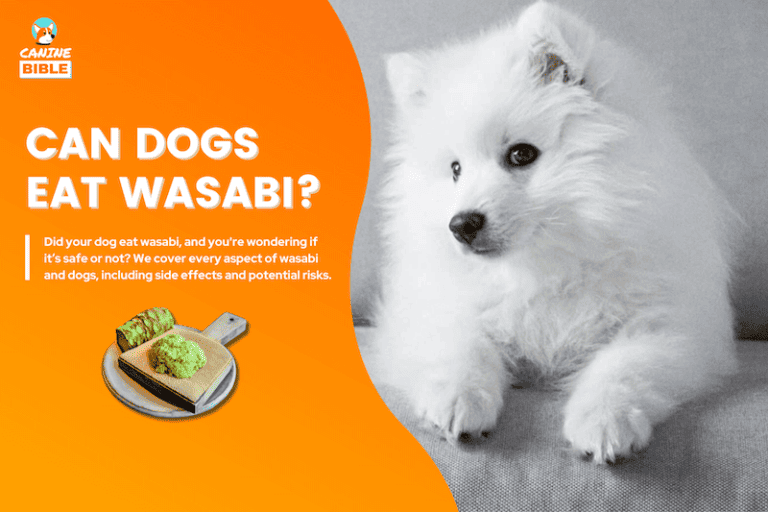Can Dogs Eat Peanut Butter? Is It Safe, Good or Bad?

Canine Bible is reader-supported. We receive affiliate commissions via some of our links. This doesn’t affect rankings. Learn more.
Can dogs eat peanut butter? The answer is not that simple. Just because peanut butter is xylitol-free doesn’t mean it’s good for your dog. Even dog-friendly peanut butter contains ingredients linked to heart disease and obesity. There’s no doubt most dogs love this sticky snack. But is peanut butter good for dogs? This guide will walk you through everything you need to know about dogs and peanut butter, including the best peanut butter for dogs, how much they can eat, benefits, risks, and everything in between. Let’s get started!
Is Peanut Butter Good For Dogs?
Peanut butter can benefit dogs, provided it’s specifically formulated for canine consumption or is made from safe, non-toxic ingredients. However, this might not be the case with many commercial peanut butter brands that include added sugars, artificial additives, vegetable oils, and even trans fats.
Peanut Butter Ingredients Toxicity Analysis In Dogs
Is Peanut Butter Safe For Dogs?
After analyzing the most common components found in standard commercial peanut butter, the ideal peanut butter for dogs should contain only peanuts. However, a little salt or sugar may also be acceptable and safe. The healthiest option is unsalted (no sugar) homemade peanut butter.
Professionals such as Dr. Susan Wynn, a veterinary nutritionist and integrative medicine specialist with BluePearl Georgia Veterinary Specialists, agree with our research and say, “If you are going [to give peanut butter to your dog], it should only have peanuts, salt, and maybe sugar. Make sure it doesn’t have Xylitol.”
Unfortunately, not every dog parent has the time to make peanut butter at home. Dr. Wynn says the best alternative is to give peanut butter marketed explicitly for dogs. Wynn says those products are “generally okay because animal nutritionists formulate them.” Fortunately, plenty of dog-friendly peanut butter brands are safe and free from all those unwanted ingredients we mentioned before.
Can Dogs Eat Peanut Butter?
Yes, dogs can eat peanut butter in moderation. Peanut butter can be a good source of protein, healthy fats, vitamins like Vitamin E, Biotin, Niacin, and Folic Acid, contributing to a dog’s healthy muscles, skin, and overall well-being. However, choosing a peanut butter free from xylitol, a toxic sweetener to dogs, and avoiding brands with added sugars, salt, or any of the ingredients listed above is essential. Given its high-calorie content, peanut butter should be given as an occasional treat rather than a regular part of a dog’s diet to prevent potential weight gain and related health issues. Always gradually introduce peanut butter to your dog’s diet to monitor for adverse reactions. Don’t be fooled by a label that says “natural” or “organic.” These healthier peanut butter alternative brands can also contain these undesired ingredients, so read the label.
NOTE: Always consult your vet before giving your dog new foods, especially human foods. Foods that are safe for some dogs may not be suitable for yours due to factors like age, health, and diet. Dogs on prescription diets should not be fed any food or treats outside the diet.
Can Dogs Eat Human Peanut Butter?
While most regular or “human” peanut butter brands are unsafe for dogs, few exceptions exist. Why dogs can’t eat human peanut butter depends on the ingredients. The human peanut butter you find at the grocery store will probably contain preservatives and extra sugar that aren’t great. Our tip is to find those exceptions entirely free of additives and other harmful ingredients for dogs. For instance, peanut butter made by Crazy Richard’s (or Teddie) lists just one ingredient, “peanuts,” and your dog should be able to enjoy this human peanut butter safely.
Why Dogs Should Avoid Peanut Butter With Xylitol
The one peanut butter ingredient your dog should avoid at all costs is Xylitol. Xylitol is a common sugar substitute in many items, including toothpaste, gum, and peanut butter. While Xylitol is safe for people, it can be deadly to dogs. Five known peanut butter manufacturers add xylitol to their products.
According to Korinn Saker, associate professor of nutrition at North Carolina State University’s College of Veterinary Medicine, Xylitol is toxic to dogs because, once consumed, it stimulates the pancreas to release insulin. The surge of insulin into the dog’s bloodstream causes hypoglycemia, a profound drop in blood sugar levels that, in turn, results in weakness, disorientation, tremors, and potential seizures.[4]
Severe hypoglycemia can be life-threatening if untreated. When a dog consumes xylitol, insulin is rapidly released, which can cause a dangerous drop in blood sugar. At higher doses, it can also cause acute liver failure.
Peanut Butter Brands That Contain Xylitol Your Dog Should Avoid
More may spring up, so always read the labels carefully. The letters “XYL” are synonymous with xylitol. The ASPCA Animal Poison Control Center recommends looking for the combination of the letters “XYZ” in any ingredient found in peanut butter or other foods you are considering feeding your dog.
According to the ASPCA, here is a list of a few xylitol-derived words you should avoid:
Health Benefits of Peanut Butter For Dogs
As tasty as peanut butter can be, they provide several important health benefits for dogs.
According to the USDA, 100 grams (or about 4 ounces) of peanut butter contains the following nutrients:
Here are a few more reasons why peanut butter is good for dogs:
May Boost Heart Health
In moderation, observational studies indicate that eating peanuts may protect against heart disease.
High In Vitamins
Packed with essential vitamins like Vitamin E and a beneficial mix of B vitamins: Biotin (Vitamin B7), Niacin (Vitamin B3) and Folic Acid (Vitamin B9).
High In Fiber
Fiber also reduces the chances of diarrhea or constipation, and evidence suggests that fiber can reduce the chances of colon cancer in dogs.
High In Healthy Fatty Acids
High in linoleic acid, which contains omega-6. These fats support growth, immunity, and healthy skin.
How to Safely Feed Peanut Butter to Dogs
When feeding peanut butter to your dog, it’s best to follow a few simple guidelines to help keep them safe:
Some of the ways you can safely feed peanut butter to your dog include:
How Much Peanut Butter Can Dogs Eat?
Treats should only constitute 10% of your dog’s diet, with the remaining 90% coming from well-balanced dog food. This guideline also applies to healthy treats like peanut butter.
Below, you’ll find general guidelines for safely portioning peanut butter based on your dog’s weight.
| Dog Size | Peanut Butter Serving (Ocassioanly) | Breed Examples |
|---|---|---|
| Extra-small (2-15 lbs.) | 1/4 tsp | Shih Tzu, Yorkies, Chihuahuas, Maltese |
| Small (16-25 lbs.) | 1/2 tsp | Boston Terriers, Beagles, Dachshund |
| Medium (26-60 lbs.) | 1 tsp | Bulldogs, Basset Hounds, Border Collies |
| Large (61-90 lbs.) | 1 tbsp | Golden Retrievers, Pit Bulls, Boxers, Labrador Retrievers |
| Extra-large (91+ lbs.) | 1 1/2 tbsp | Bullmastiffs, Great Danes, Saint Bernards, Great Pyrenees |
Is Peanut Butter Bad For Dogs?
An excess of peanut butter can result in pancreatitis and obesity in dogs. To prevent the adverse side effects of peanut butter, feed in moderation and choose peanut butter that avoids problematic ingredients. You should be aware of certain aspects of peanut butter.
Aflatoxins
Aflatoxins are one of the most carcinogenic (cancer-causing) substances, and peanuts contain them. Aflatoxin is a naturally occurring peanut substance that can never be reduced to “zero.” Healthline reports that processing peanuts into peanut butter reduces aflatoxin levels by 9%. However, aflatoxin does not form in peanut butter once packed in containers. Therefore, if the production process is safe, the final product will be safe when it reaches the consumer, as the National Peanut Board reported.[5]
So, should you worry about aflatoxins in your dog’s peanut butter? Yes and no. If you buy peanuts (or peanut butter) from reputable grocery stores or peanut growers, the risk of exposure to aflatoxin in American peanut products is very low. The FDA and the USDA monitor the amounts of aflatoxins in peanuts and ensure they don’t exceed recommended limits. However, you should be concerned and avoid buying peanut butter or peanuts from untrusted sources with minimal or non-existent government-enforced production and regulation to minimize aflatoxin risk in human and animal food. If you were thinking about using some peanuts you bought at a local flea market to make homemade peanut butter for your dog, think again. Research shows that aflatoxin causes liver cancer in laboratory animals and poses a risk for your dog.[6]
A study by the Consumers Union revealed that toxin levels of aflatoxin in peanut butter varied from brand to brand. Popular brands like Peter Pan, Jif, and Skippy had the lowest levels, while the highest levels were found in the peanut butter that is ground fresh in health food stores. These findings may seem contradictory, but this may be because “natural” or “organic” peanut butter is less processed than traditional commercial peanut butter.
Glyphosate
It’s common practice for peanut farmers to spray GMO crops with Roundup and other herbicides to prevent weeds. The problem is most of these herbicides have glyphosate as an active ingredient Glyphosate is dangerous for you, your dog, and other pets According to the National Pesticide Information Center, animals exposed to formulated glyphosate herbicides have displayed anorexia, lethargy, hypersalivation, vomiting, and diarrhea Symptoms persisted for 2 to 24 hours following exposure A recent study found that exposure can increase cancer risk by 41% The World Health Organization recognizes glyphosate as a probable carcinogen, and this chemical is banned in some countries.[7]
Should I worry about Glyphosate contamination in my dog’s peanut butter? Our research found that popular brands use peanuts contaminated with glyphosate, e. Here is a certificate of analysis on Skippy Natural Peanut Butter with Honey issued by the Health Research Institute. They found that Skippy Natural Peanut Butter with Honey contained 11.71 ng/g of glyphosa e. This is another reason peanut butter can be bad for dogs.[8]
Unbalanced omegas
Peanuts have an unbalanced ratio of omega-6 fatty acids relative to omega-3. Some studies suggest that this may increase inflammation and the risk of chronic disease.[9]
Possible Side Effects & Risks of Peanut Butter In Dogs
The following symptoms may indicate a bad reaction to peanut butter.
What Should I Do If My Dog Reacted Badly to Peanut Butter?
If your dog reacts badly to a food generally considered safe, like peanut butter, you should stop feeding it and remove its access. Ensure it has access to fresh water to maintain hydration. It’s important to call your veterinarian if your dog is experiencing any of the symptoms listed above or if you’re concerned about its condition.
Can’t reach your vet? Contact the Pet Poison Helpline at 1-855-764-7661 or chat live with a veterinary professional via our online vet chat or video chat support (24 hours a day, 7 days a week).
Dogs showing worsening symptoms, such as blood in their vomit or stool, difficulty breathing, weakness, or collapse, should be taken to the veterinarian immediately.
Are Dogs Allergic to Peanut Butter?
While not common, some dogs may have an allergic reaction to peanuts. Symptoms can include itching, swelling, hives, and, in severe cases, anaphylaxis, a medical emergency.
If you suspect your dog is having an allergic reaction to any food, including peanut butter, it is crucial to consult a veterinarian. Your vet can provide appropriate advice and help you formulate a safe diet plan for your dog. We also recommend conducting an at-home dog allergy test to determine if your dog is sensitive or intolerant to certain foods.
Can Puppies Eat Peanut Butter?
Yes, puppies can safely eat peanut butter—ensure it’s the right kind and in moderation. Dr. Melanie, BVSC MS, says it should not contain the artificial sweetener xylitol, which is toxic to dogs. Also, to prevent obesity, treats should make up no more than 10% of the total daily calories.
At What Age Can Dogs Eat Peanut Butter?
Introduce any treat (peanut butter) during the last weeks of the weaning process in puppies, which is completed by about seven to eight weeks of age. Veterinarian David Elbeze, DVM, MRCVS, recommends starting with treats at two months of age (eight weeks old).
Dogs That Shouldn’t Eat Peanut Butter
There are several reasons why some dogs should abstain from eating peanut butter. Dogs with or prone to pancreatitis should avoid peanut butter altogether, as high-fat foods like peanut butter can trigger it. Pancreatitis is more common in certain breeds, such as cavalier King Charles spaniels, Collies, miniature schnauzers, and Yorkshire terriers. If you own any of these breeds, speaking with your veterinarian before giving them peanut butter is essential. Additionally, if your dog is taking any medication, it’s advisable to call your vet to see if it’s prudent to feed them peanut butter. Some health conditions may require your dog to avoid certain foods, and peanut butter can be one of them. Owners of dogs diagnosed with diabetes should also be mindful of the effects of peanut butter on diabetic dogs.
Dog Eating Peanut Butter Video
Watch these dogs eating peanut butter! The joy on their faces is priceless, lol!
Other Alternatives to Peanut Butter For Dogs
Apart from peanut butter, a wide variety of treats are available that provide the same or even better benefits for your dog than peanut butter.
Frequently Asked Questions
Here are the answers to other frequently asked questions about dogs and peanut butter.
The Bottom Line
Can dogs eat peanut butter safely? Yes, peanut butter is safe for dogs as long as you pick the correct type of peanut butter that doesn’t have all the harmful ingredients that may cause harm to your pet. We put a lot of effort and time into researching peanut butter and dogs because, as dog parents, we know how important keeping our dogs safe is. A new kind of peanut butter in the market that uses CBD oil for dogs is worth looking into. CBD-infused dog peanut butter has remarkable health benefits.
Like It? Subscribe & Share!
Sources
Canine Bible uses only high-quality sources, including peer-reviewed studies, to support the facts within our articles. Read our editorial process and product review methodology to learn more about how we fact-check, test products, and keep our content accurate, reliable, and trustworthy.
- DAG Toxicity Study, Vets Now
- PetMD
- SOS
- NC State Veterinary Medicine
- National Peanut Board
- National Pesticide Information
- Science Direct: Glyphosate
- Health Research Institute
- PubMed

